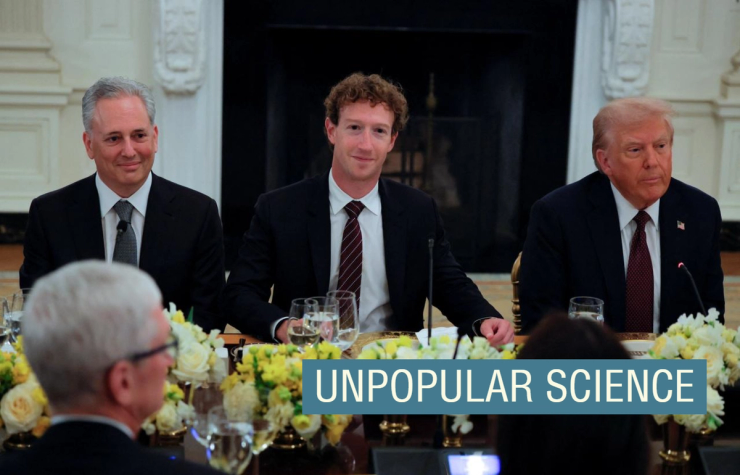David’s view
The AI industry’s new super PAC, flush with cash to defend AI’s growth as critical to countering China, picked its first political target this month — and missed.
New York state Assemblyman Alex Bores is working to break out of a crowded field in the Democratic primary to succeed Rep. Jerrold Nadler. He wasn’t even close to frontrunner status when the Leading the Future PAC went after him.
But becoming the first enemy of a $100 million pro-AI effort turned out to be a nice boost for the 35-year-old’s campaign. He was almost flattered that the industry would single out his RAISE Act, which requires new AI safety standards, among other changes.
“I appreciate that they’re being so direct,” Bores told Semafor. “They sound terrified that I will stand up to them on behalf of the people of this district, that I will be the biggest obstacle to their quest for unbridled control over the American worker, over our kids, over the environment. They’re right about that.”
This wasn’t the plan for Leading the Future, whose electoral plan aligns with Fairshake, the cryptocurrency PAC that Republicans thanked for beating Democrats last year. There’s one big difference between them: Fairshake was fighting for a product that only a small minority in the US owns, with fewer still getting rich off it. The AI industry is discovering populist anger that’s growing faster than many in both parties expected.
On the local level, Democrats and Republicans have already won votes by campaigning against AI, or at least for limits on its growth. President Donald Trump is on the industry’s side, pushing to stop state-level regulations that could slow it, but some of his more prominent MAGA allies see unrestrained AI as an obstacle to his promised “golden age.”
“President Trump’s AI policy is so unpopular because his primary adviser is a representative of Big Tech whose interests are fundamentally misaligned with the base,” said Michael Toscano, a senior fellow at the conservative Institute for Family Studies.
He was referring to Trump tech adviser David Sacks, who warned on Monday that a “reversal” on AI investments could spur a recession.
“If President Trump wants AI policy that is embraced by his voters, he needs to hear the views of the pro-family and child-safety movement, religious Americans, and workers, who have deep concerns about the future of AI and valid policy ideas about what to do about it,” Toscano added.
A Sacks spokesperson did not return a request for comment.
In this article:
Know More
Worries about unchecked AI are widespread, without an anchor in one party. Polling conducted for Edelman this month found that just 32% of Americans were “confident” about AI and just 17% wanted to see greater use of the technology in everyday life.
Democrats had a rollicking success in this month’s off-year elections, winning wherever they campaigned on AI limits. For example, several of their candidates pushed companies to pay more for their own energy when they build data centers.
That campaigning fit into the “affordability” focus that now drives every Democratic campaign. But the candidates who ran on it found more anti-AI sentiment below the surface. Attacking the industry worked every Democratic muscle.
Protecting children from the sometimes fatal advice of chatbots has felt like going after “Big Tobacco” in the 1990s; accusing Republicans of giving “Big Tech” whatever it wanted is the sort of anti-billionaire populism that’s second nature to most Democrats.
“People want AI, but they want to be protected from abuse,” Sen. Chris Murphy, D-Conn., said this week, explaining why all but one Republican senator joined every Democrat to oppose a federal law banning state regulation of AI. “The rich and the powerful control the Trump White House. In particular, the AI industry controls this White House.”
But now that ban on state regulation is back, and Republicans are openly split over what to do. MAGA-centric concerns about AI are drawing from the same angst that some Democrats have. Whose jobs could be lost? Aren’t chatbots and endless online slop compounding the male loneliness epidemic, or the decline of reading?
And when did anything good ever come of a federal law limiting what states can do?
“There should not be a moratorium on states rights for AI,” retiring Rep. Marjorie Taylor Greene, R-Ga., wrote on X last week. “States must retain the right to regulate and make laws on AI and anything else for the benefit of their state.”
The industry is aware it has a problem. Josh Vlasto, the former Chuck Schumer adviser who works as spokesman for both the crypto and AI PACs, told me that Bores was acting as a catspaw of the effective altruism movement, which has nightmares about AI.
His broader pitch is that Americans can’t afford to get caught up in populist distractions and lose the AI war.
“This is a transformational technology that has unbelievable opportunities to create jobs, improve health care outcomes, improve education,” said Vlasto. “In terms of protecting kids and users, privacy, data privacy, intellectual property, and ensuring a strong transition to the next generation economy for jobs — who in the world would you rather have controlling that process? The United States or China?”
Bores simply shrugged at the well-funded opposition’s depiction of him.
“It sounds like they’re searching for a boogeyman,” he told me.
Room for Disagreement
A few days after I talked to Vlasto, the AI industry super PAC’s nonprofit arm began running 30-second ads aimed at policymakers that have broader appeal than one New York primary.
The ad’s message: To protect kids, jobs, and IP, lawmakers needed to legislate some AI standards that let US companies win.
Notable
- In his newsletter, Derek Thompson collaborates with Tim Lee for a clip-and-save guide on having smart AI conversations.
- Will Steakin at ABC News beat me to some of the conservative backlash.
- In the Financial Times, Joe Miller talks to more Trump-friendly critics of the AI rush.


